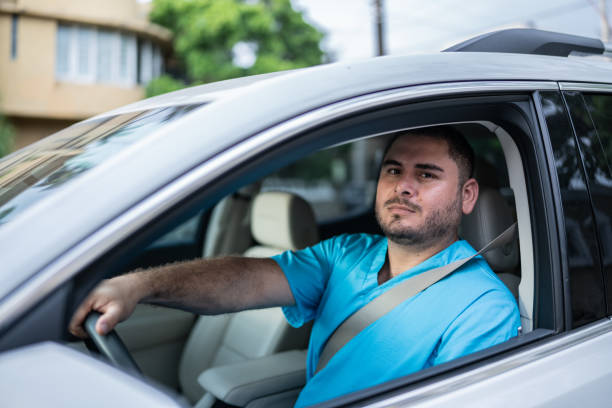Do insurance companies go after uninsured drivers? In the intricate realm of auto insurance, a fundamental question often arises:
“Do insurance companies go after uninsured drivers?” This query delves into the complex interplay between insurance providers and individuals who, for various reasons, find themselves without the required auto insurance coverage.
Uninsured drivers present a significant challenge for the insurance industry, as their lack of coverage can lead to financial and legal complications in the event of an accident.
This article aims to shed light on the strategies, motivations, and legal considerations that drive insurance companies to pursue uninsured drivers.
Also Read:
Can You Use Life Insurance While Alive?
Does Insurance Cover Gastric Sleeve?
Do Insurance Companies Go After Uninsured Drivers?
Insurance companies do indeed pursue uninsured drivers, a necessity stemming from the potential financial and legal ramifications of being involved in an accident without coverage.
Uninsured drivers jeopardize not only their own financial security but also that of other parties involved in accidents.
When uninsured drivers are at fault, insurance companies often seek to recover their costs through various means.
These may include pursuing legal action, filing claims against the uninsured driver, or collaborating with law enforcement to enforce insurance regulations.
Moreover, insurance companies may employ tactics such as pursuing civil lawsuits to recoup the expenses incurred due to accidents caused by uninsured drivers.
State laws and regulations play a pivotal role in shaping insurance companies’ actions, as they govern the requirements for mandatory insurance coverage.
Uninsured drivers can face severe consequences, ranging from fines and penalties to potential suspension of their driving privileges.
Insurance companies’ efforts to address uninsured drivers underline their commitment to upholding the integrity of the insurance system and ensuring that all parties are adequately protected in the event of accidents.
While these actions may appear punitive, they ultimately contribute to maintaining a balanced and responsible driving environment for all motorists.
Legal Implications for Uninsured Drivers and Insurance Companies
The legal implications for uninsured drivers and insurance companies are significant and multifaceted.
Uninsured drivers often face legal consequences due to their failure to comply with mandatory insurance requirements.
In the event of an accident, they may be held personally liable for damages and injuries, potentially resulting in lawsuits and substantial financial burdens.
Penalties imposed by authorities can include fines, license suspension, and even impoundment of their vehicles.
Insurance companies, on the other hand, navigate legal complexities as they seek to recover costs from uninsured drivers.
They may file claims against these drivers to recoup expenses incurred due to accidents.
Legal actions like civil lawsuits might be pursued, aiming to hold uninsured drivers accountable for their actions and the resulting financial losses.
In some cases, insurance companies collaborate with law enforcement to enforce insurance regulations, further entangling legal considerations.
State laws heavily influence these legal dynamics, as insurance requirements vary by jurisdiction.
The legal landscape underscores the importance of insurance companies in upholding the integrity of the insurance system and ensuring compliance with laws that safeguard all motorists.
Overall, the legal implications for uninsured drivers and insurance companies underscore the critical need for responsible driving and adherence to insurance regulations to prevent financial and legal hardships.
Methods Used by Insurance Companies to Recover Costs from Uninsured Drivers
Insurance companies employ various methods to recover costs from uninsured drivers, striving to mitigate the financial burden caused by accidents.
When uninsured drivers are at fault, insurance providers often pursue legal avenues to seek compensation.
This can involve filing claims directly against the uninsured driver, aiming to recover the expenses associated with property damage, medical bills, and other related costs.
Another approach is initiating civil lawsuits against uninsured drivers.
Through legal action, insurance companies can hold these drivers accountable for their actions, seeking restitution for the financial losses incurred due to accidents.
Additionally, insurance companies might collaborate with law enforcement to enforce mandatory insurance regulations, leading to penalties and fines for uninsured drivers.
In some cases, insurance companies utilize specialized departments dedicated to handling uninsured motorist claims.
These teams work diligently to investigate accidents, gather evidence, and negotiate with uninsured drivers to reach settlements.
Through negotiation or legal action, insurance companies aim to recover their costs and ensure that responsible parties bear the financial consequences of their actions.
Overall, the methods employed by insurance companies to recover costs from uninsured drivers reflect their commitment to maintaining a fair and balanced system that protects both insured parties and the overall integrity of the insurance industry.
Also Read:
Can You Insure a Car Not in Your Name?
Do Parking Tickets Affect Insurance?
Conclusion
The pursuit of uninsured drivers by insurance companies is a necessary and intricate facet of the insurance landscape.
Uninsured drivers pose financial and legal risks not only to themselves but also to other motorists and insurers.
Through a combination of legal actions, claims filing, collaboration with law enforcement, and adherence to state regulations, insurance companies seek to recover costs and hold uninsured drivers accountable.
This pursuit underscores the commitment to upholding the integrity of the insurance system, fostering responsible driving practices, and ensuring equitable outcomes for all parties involved in accidents.
Ultimately, the efforts of insurance companies to address uninsured drivers contribute to a safer and more responsible driving environment for everyone on the road.










